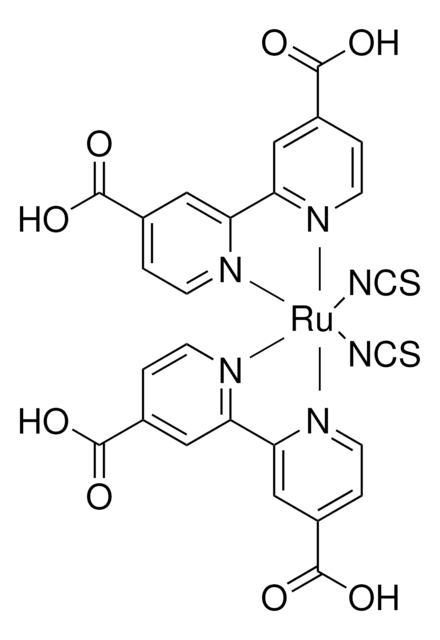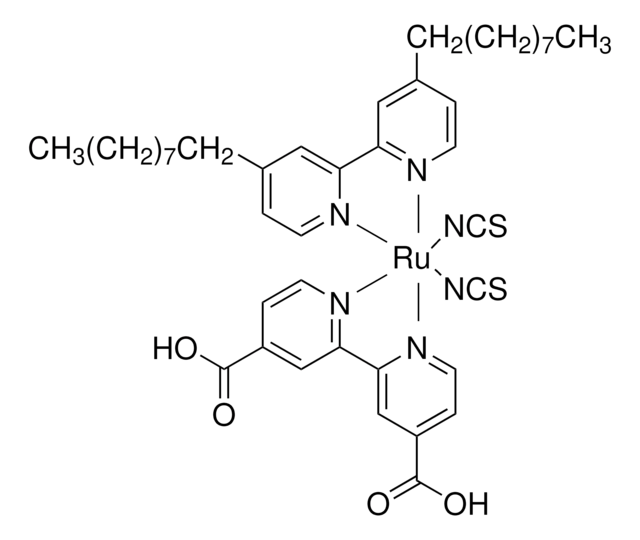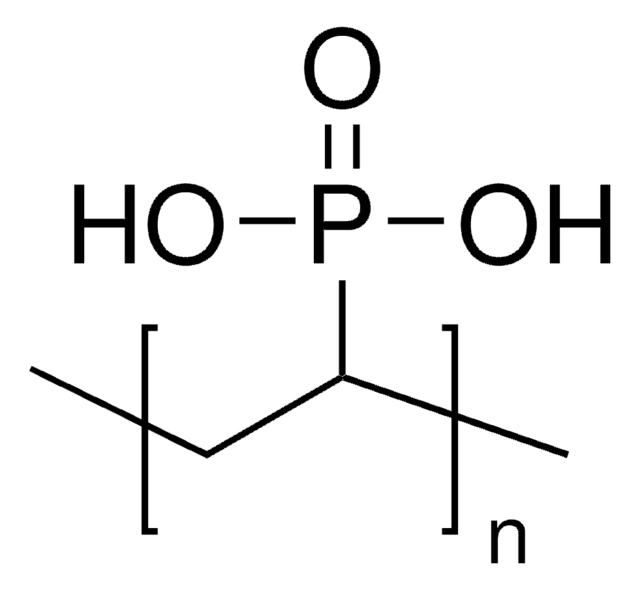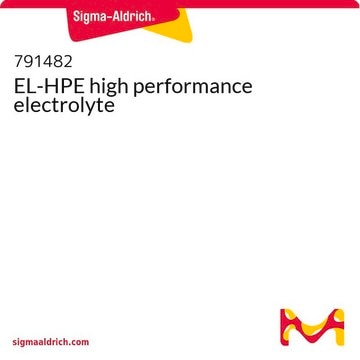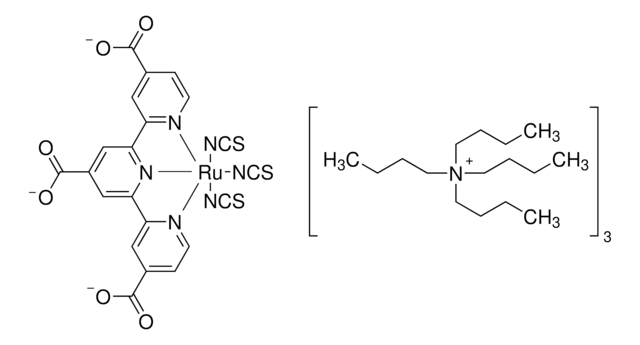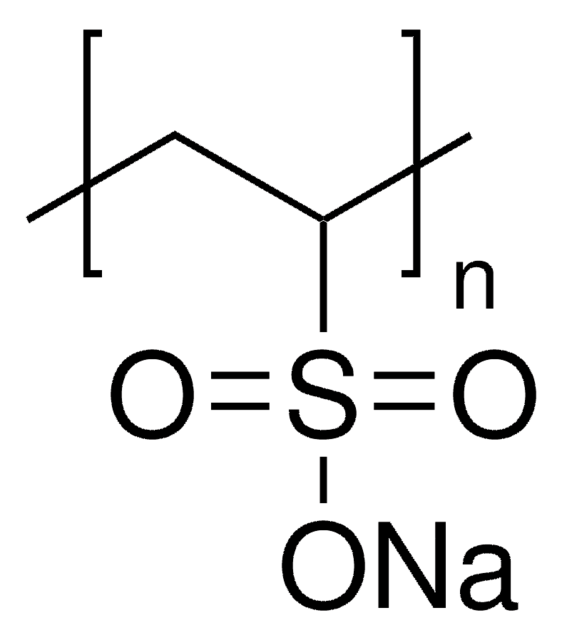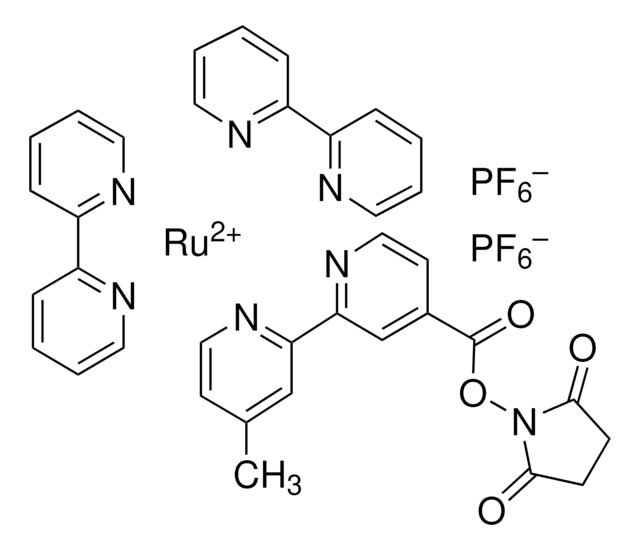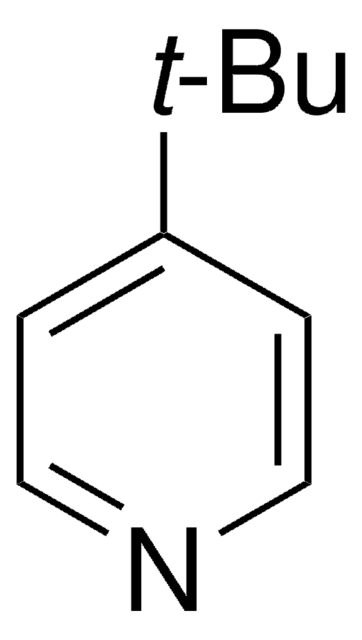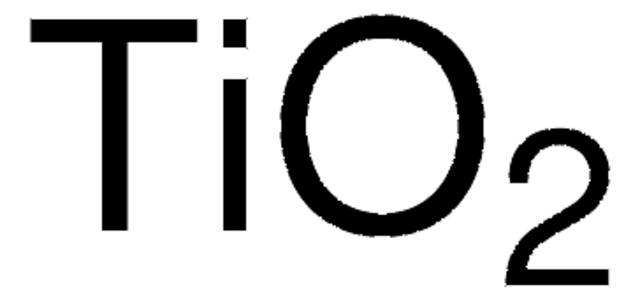703214
Di-tetrabutylammonium cis-bis(isothiocyanato)bis(2,2′-bipyridyl-4,4′-dicarboxylato)ruthenium(II)
95% (NMR)
Synonym(s):
Greatcell Solar®, N-719 dye
About This Item
Recommended Products
Quality Level
assay
95% (NMR)
form
powder
composition
Dye content, ≥90% HPLC
mp
250-260 °C
λmax
534, 393, 313 nm (lit.)
SMILES string
S=C=N[Ru]N=C=S.CCCC[N+](CCCC)(CCCC)CCCC.CCCC[N+](CCCC)(CCCC)CCCC.OC(=O)c1ccnc(c1)-c2cc(ccn2)C([O-])=O.OC(=O)c3ccnc(c3)-c4cc(ccn4)C([O-])=O
InChI
1S/2C16H36N.2C12H8N2O4.2CNS.Ru/c2*1-5-9-13-17(14-10-6-2,15-11-7-3)16-12-8-4;2*15-11(16)7-1-3-13-9(5-7)10-6-8(12(17)18)2-4-14-10;2*2-1-3;/h2*5-16H2,1-4H3;2*1-6H,(H,15,16)(H,17,18);;;/q2*+1;;;2*-1;+2/p-2
InChI key
MQGCPZMVNHGIPF-UHFFFAOYSA-L
Related Categories
General description
Application
Legal Information
Greatcell Solar is a registered trademark of Greatcell Solar Materials Pty Ltd.
signalword
Danger
hcodes
pcodes
Hazard Classifications
Resp. Sens. 1
Storage Class
11 - Combustible Solids
wgk_germany
WGK 3
flash_point_f
Not applicable
flash_point_c
Not applicable
ppe
dust mask type N95 (US), Eyeshields, Faceshields, Gloves
Certificates of Analysis (COA)
Search for Certificates of Analysis (COA) by entering the products Lot/Batch Number. Lot and Batch Numbers can be found on a product’s label following the words ‘Lot’ or ‘Batch’.
Already Own This Product?
Find documentation for the products that you have recently purchased in the Document Library.
Customers Also Viewed
Articles
Dye solar cells (DSCs) are third generation solar cells with the promise of high efficiency combined with low production costs. While present day DSCs provide light-to-electricity conversion of up to 11%, significant further improvement is envisaged through optimized materials and novel cell and module architectures.
Dye-sensitized solar cells directly convert sunlight to electricity
Over the last decade, dye-sensitized solar cells (DSSCs) have attracted much attention because these unconventional solar cells exhibit high performance and have the potential for low-cost production.
One of the more traditional photovoltaic devices, single crystalline silicon solar cells were invented more than 50 years ago, currently make up 94% of the market. Single crystalline silicon solar cells operate on the principle of p-n junctions formed by joining p-type and n-type semiconductors.
Our team of scientists has experience in all areas of research including Life Science, Material Science, Chemical Synthesis, Chromatography, Analytical and many others.
Contact Technical Service